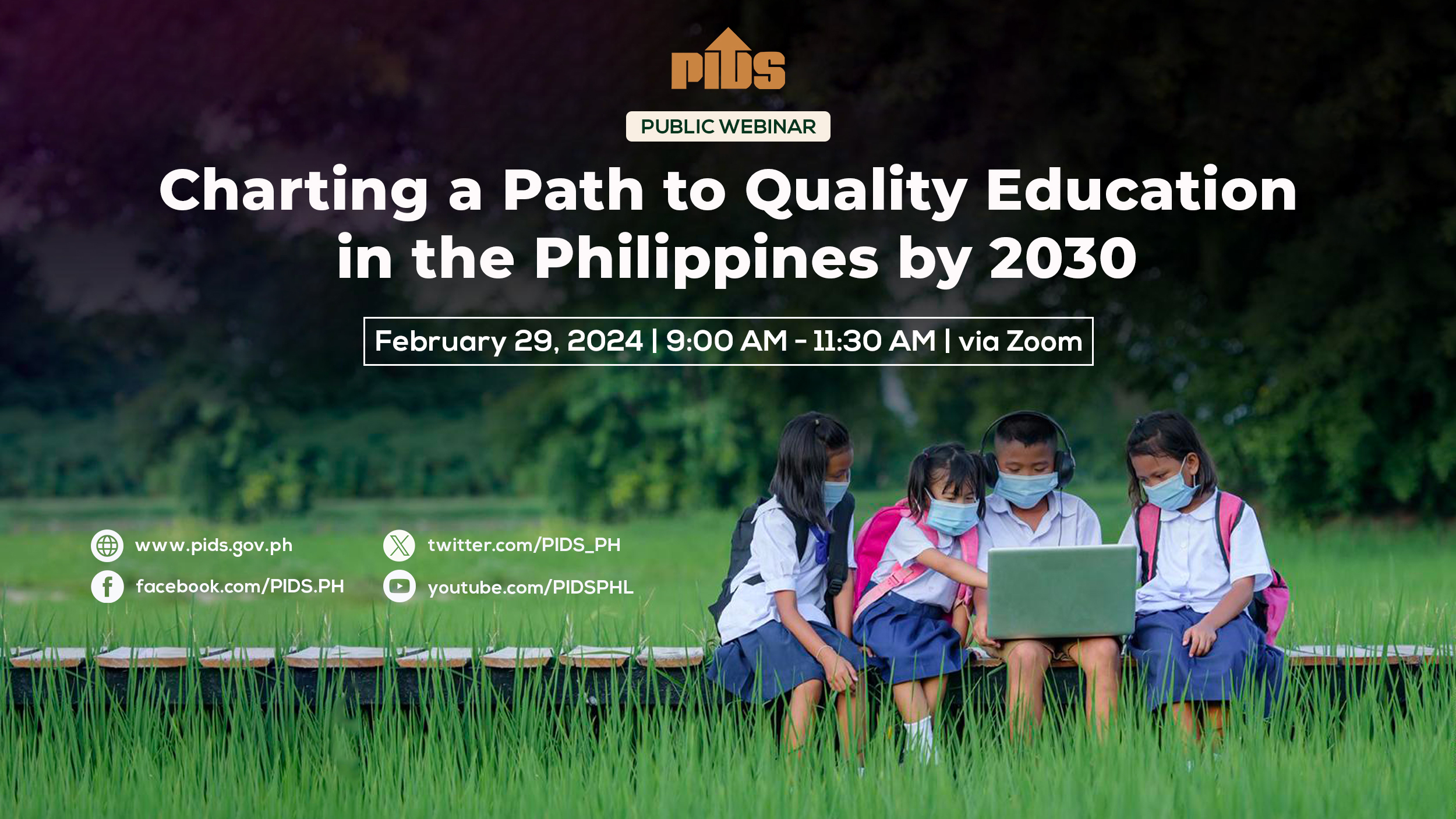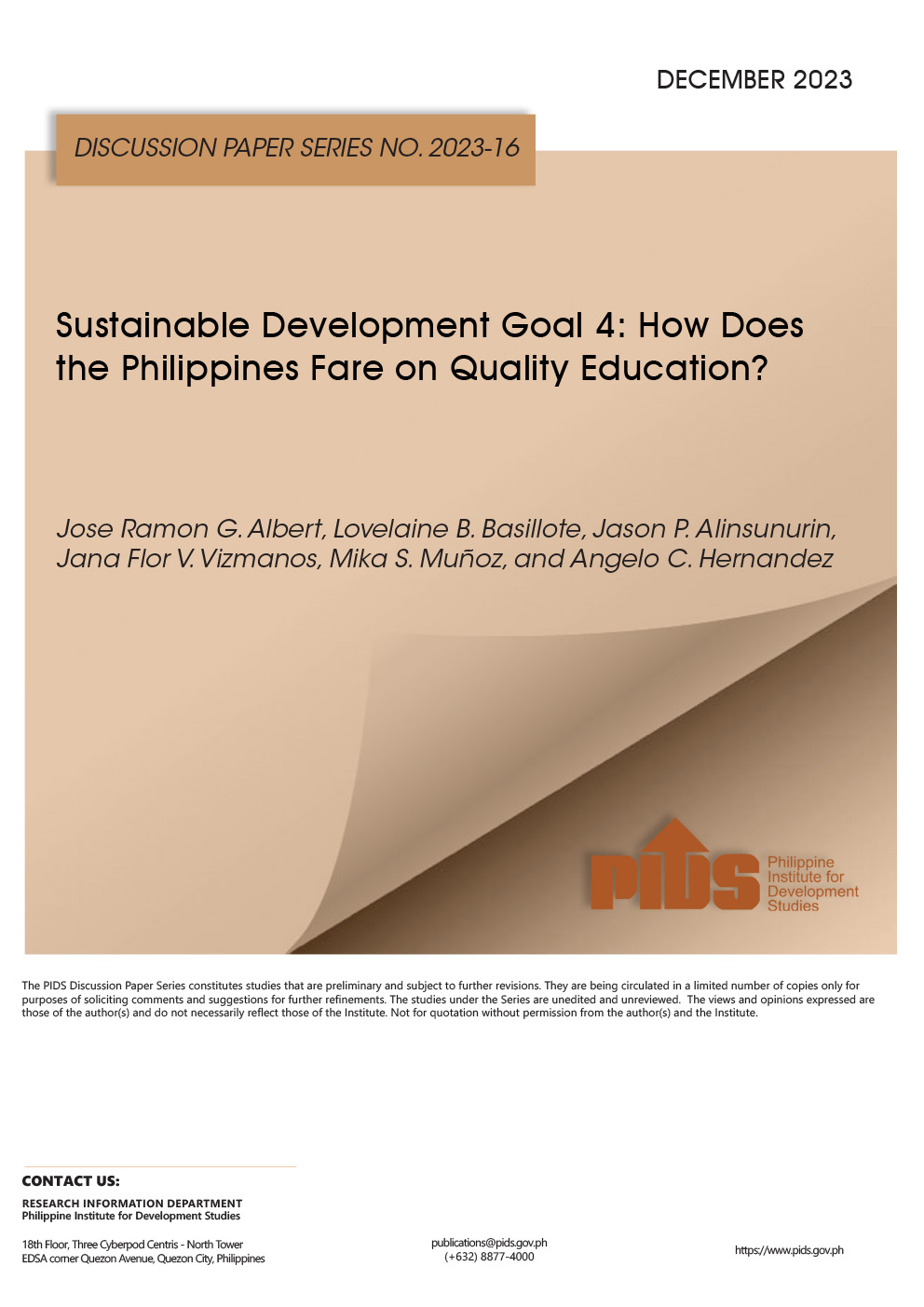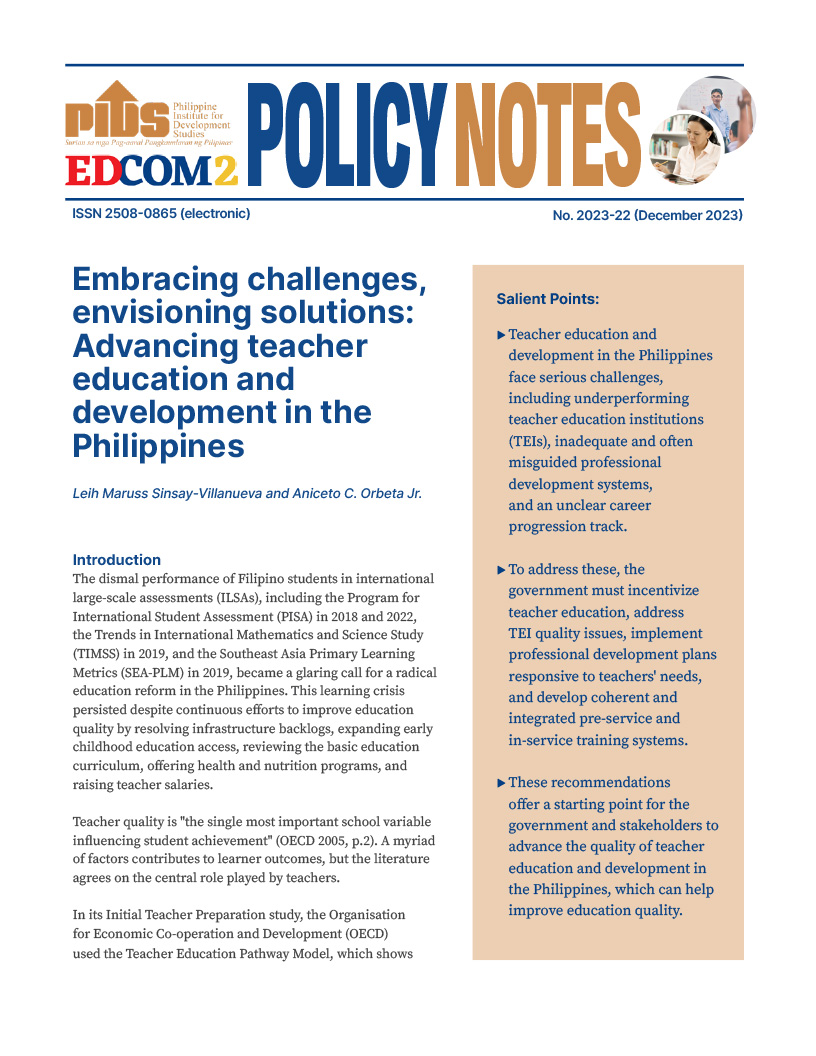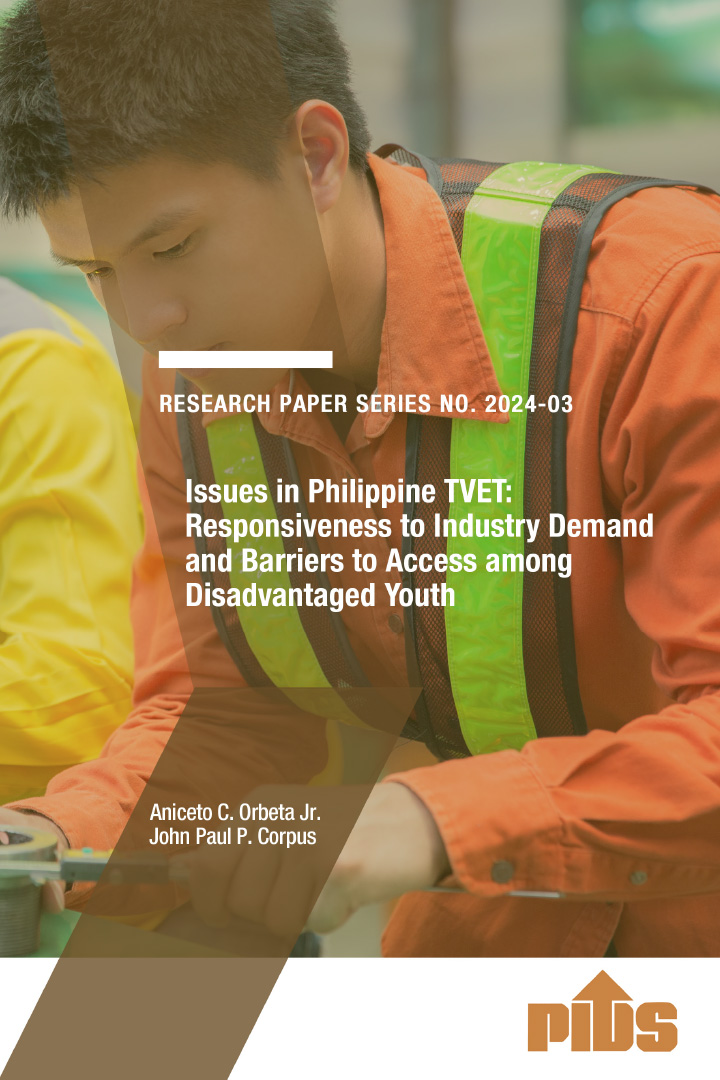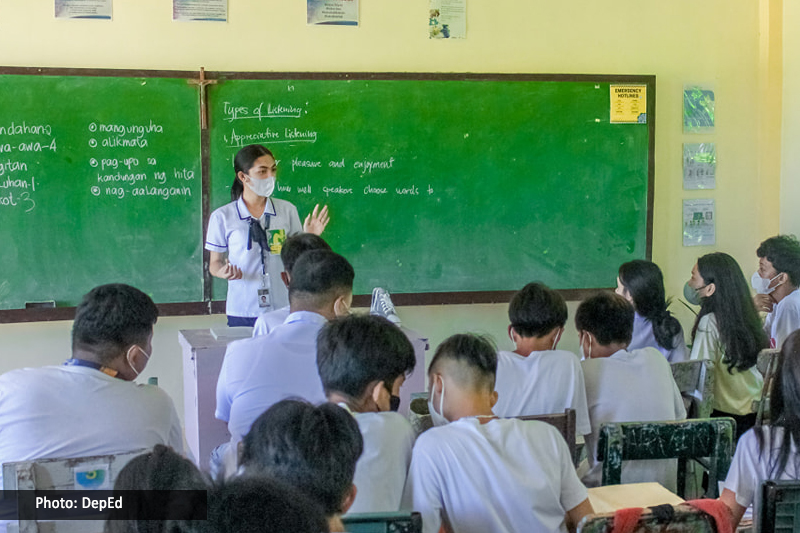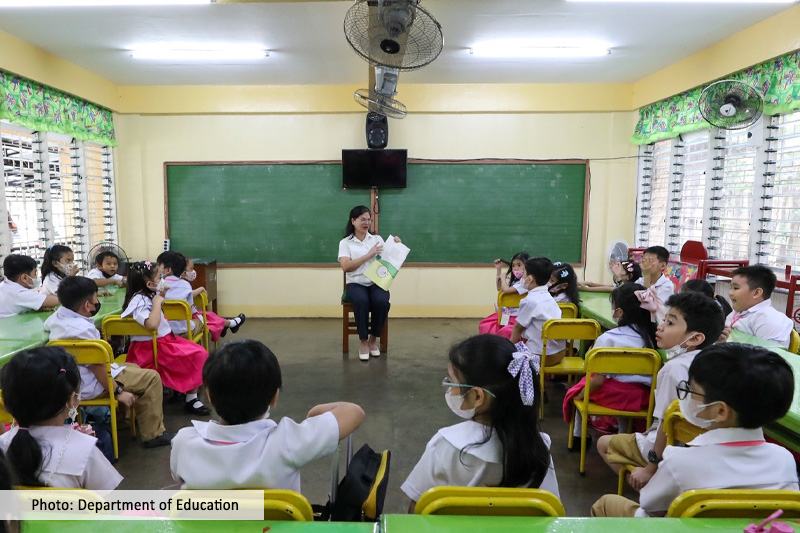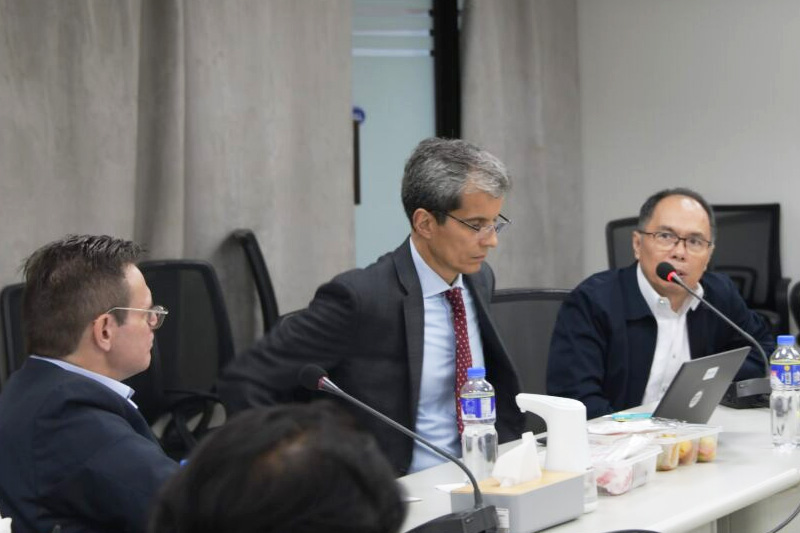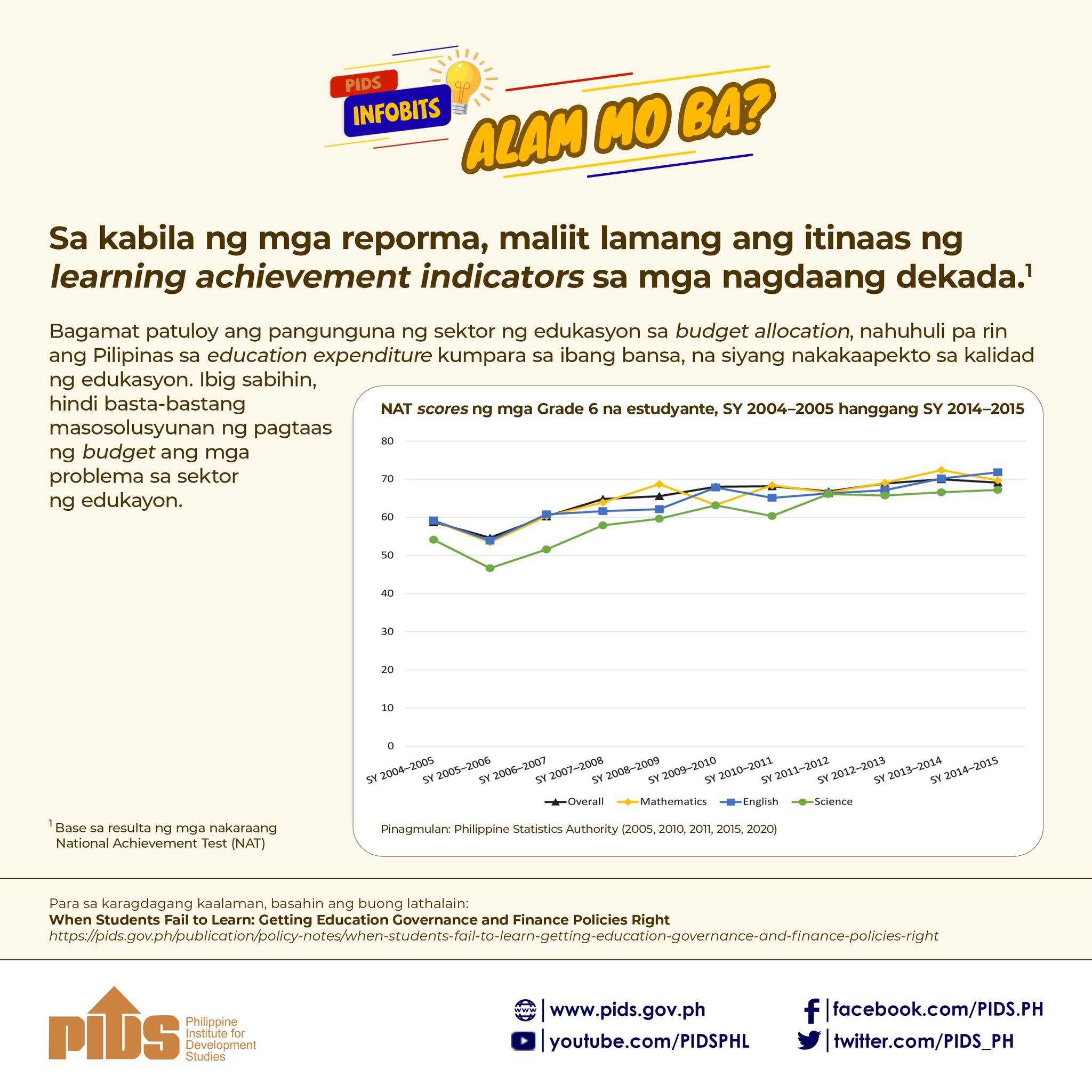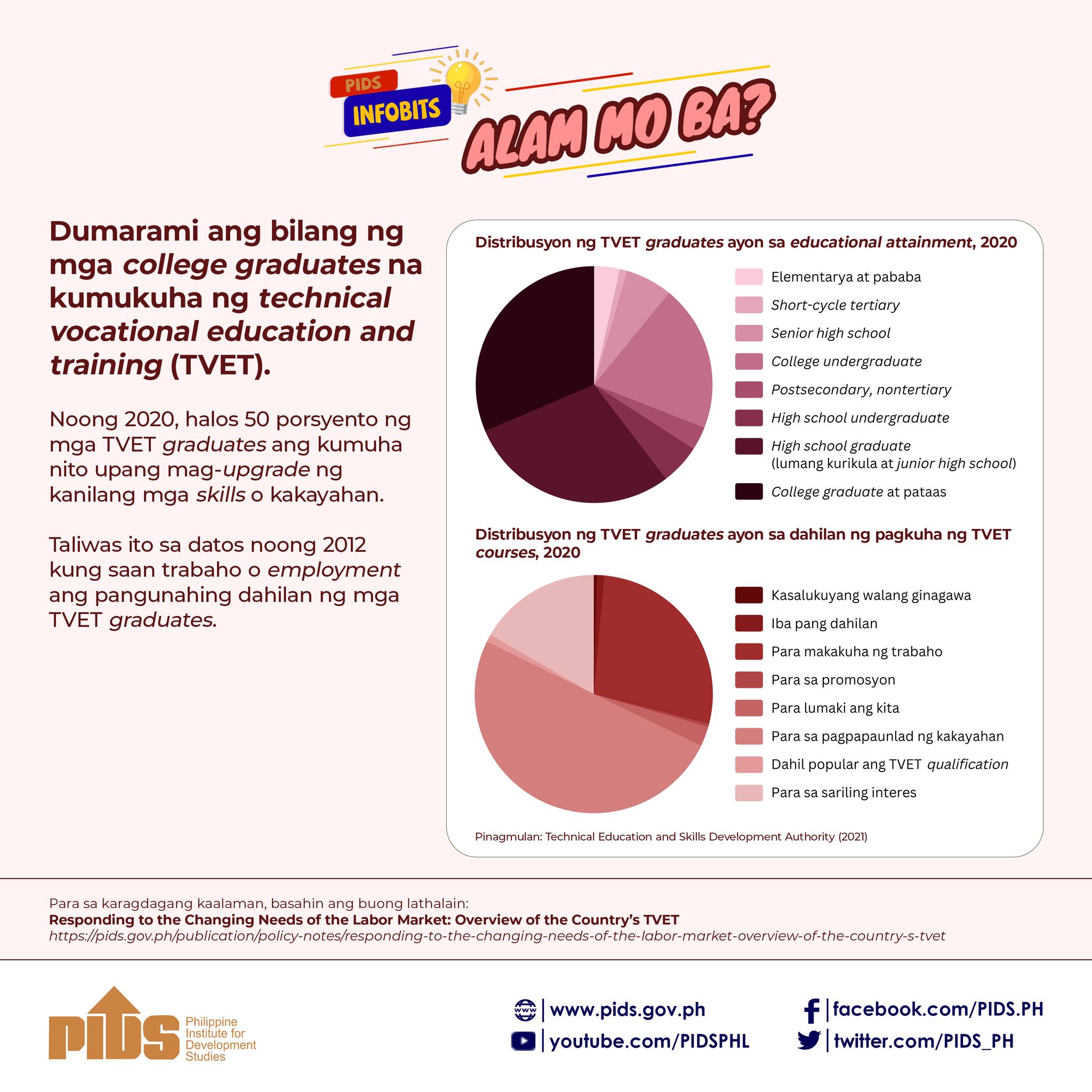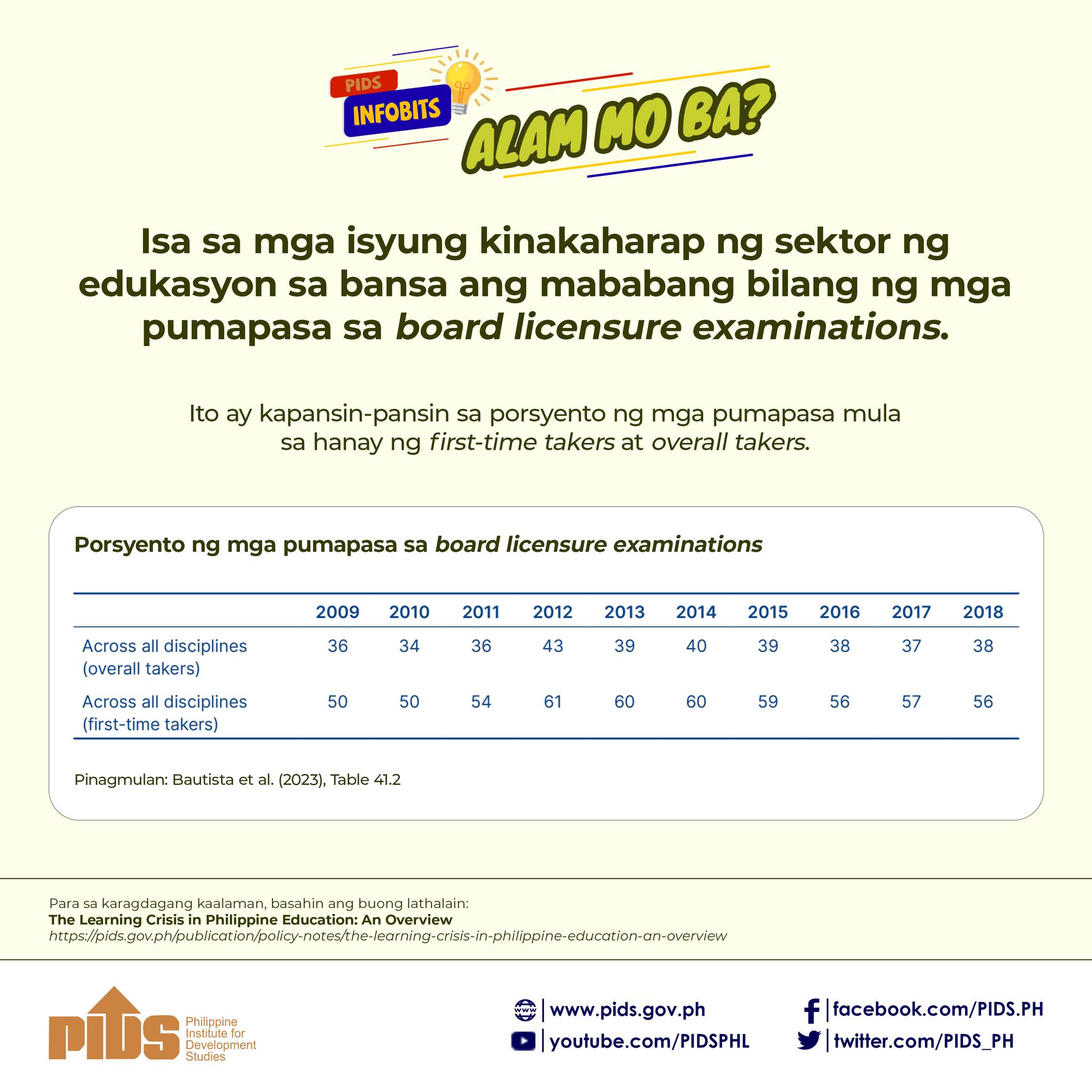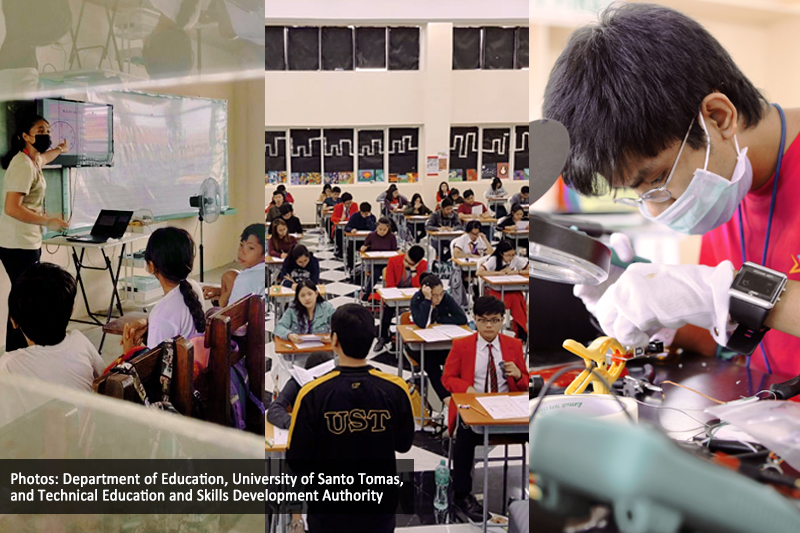
Increased investments in Filipino education require systemic reforms to address learning losses and improve quality. In a recent webinar by the Philippine Institute for Development Studies (PIDS), experts highlighted the need for strategic interventions linking education policies, funding, teacher support, job creation, and skills development to achieve the targets of Sustainable Development Goal 4 (SDG4) on quality education.
In their featured study titled, “Sustainable Development Goal 4 on Quality Education for All: How Does the Philippines Fare and What Needs to Be Done?”, PIDS Senior Research Fellow Jose Ramon Albert and co-authors highlighted the challenges in achieving quality education. He pointed to sub-optimal proficiency rates among students in key subjects as evidenced by pre-pandemic National Achievement Test (NAT) scores showing limited K to 12 impacts.
While acknowledging the critical role of adequate funding, Albert emphasized that budgetary limitations, among others, are currently hindering improvements. “High-quality education relies on adequate financing for well-qualified teachers, conducive learning environments, robust assessments, and innovative technologies,” he explained. However, he cautioned that increased budgets alone cannot guarantee better outcomes if not allocated strategically.
Albert acknowledged the critical role teachers play in achieving quality education. He then addressed a common misconception, clarifying that teachers are not necessarily underpaid. However, this does not negate the extensive demands they face beyond instruction. “Rather than higher pay, increased focus and support for teachers to devote time to facilitate learning is needed,” he argued.
This was echoed by discussant Second Congressional Commission on Education (EDCOM 2) Chief Technical Specialist Krupskaya Añonuevo. Teachers continue to bear the burden of about 50 percent of administrative and ancillary tasks, despite efforts to allow them to focus on teaching. “While administrative officers have been hired—5,000 per year starting in 2020—the impact remains limited,” she noted.
Additionally, the existing standards for school administrative support staff require review and updating. Añonuevo mentioned that these standards were anchored on a document from 1997, making them outdated and inadequate for accounting current school needs, particularly at the elementary level. “We cannot overlook the importance of revising outdated staffing standards, particularly at the elementary level, to ensure equitable allocation of support staff,” she said. She also suggested deploying non-teaching personnel to clusters of schools and hiring through Contract of Service or Job Order to enable the removal of non-teaching tasks.
In response, fellow discussant DepEd Bureau of Curriculum Development Director Samuel Soliven mentioned that they are addressing this concern through DepEd Order No. 2, series of 2024, or the Immediate Removal of Administrative Tasks of Public School Teachers. This guidelines under the DepEd’s MATATAG agenda would allow the removal of administrative tasks from public school teachers to maximize their time in actual classroom teaching.
Transitioning from general education reforms, the discussion also delved into the concerns of Technical and Vocational Education and Training (TVET) and tertiary education.
Co-author and presenter former Philippine Business for Education Executive Director Lovelaine Basillote reported the challenges in the TVET sector. Basillote highlighted significant gaps in trainer capacity and program infrastructure. “Based on the Technical Education and Skills Development Authority (TESDA)’s 2022 Annual report, we also lack assessors and assessment centers. Program registration is also falling behind demand,” she said.
Proposals included upskilling existing trainers through initiatives like the Universal Access to Quality Tertiary Education Act (UAQTE) and partnering with the private sector for program development.
In the same line, co-author and presenter De La Salle University-School of Economics Associate Dean Jason Alinsunurin emphasized the vital role of post-secondary education in addressing socio-economic disparities and enhancing workforce productivity.
“Despite higher college participation outcomes among younger people, they do not necessarily go into professional jobs. Findings show an increasing share of the youth going into the middle-skilled and low-skilled occupations,” he revealed. This translates to a rise in young senior high and college graduates entering low-skilled jobs and being underemployed.
This disconnect between education and employment suggests labor supply and labor demand issues. As Alinsunurin explained, “either the Philippine industries are not getting sophisticated enough or they are not getting enough investments to hire highly educated workers”. To address this mismatch, he recommended the creation of labor market information systems, targeted programs for vulnerable groups, strengthening of lifelong learning opportunities, developing appropriate policy research agenda, and encouraging collaboration between local government units and higher education institutions.
Recognizing the urgency of these systemic issues, the need for a comprehensive approach was emphasized. As Albert concluded, the evidences reveal a crisis in the education sector. He asserted the need for DepEd, TESDA, Commission on Higher Education, and EDCOM 2 to maximize the returns from every peso invested in education.
Watch the webinar here: https://www.pids.gov.ph/details/resource/videos/charting-a-path-to-quality-education-in-the-philippines-by-2030. ###

